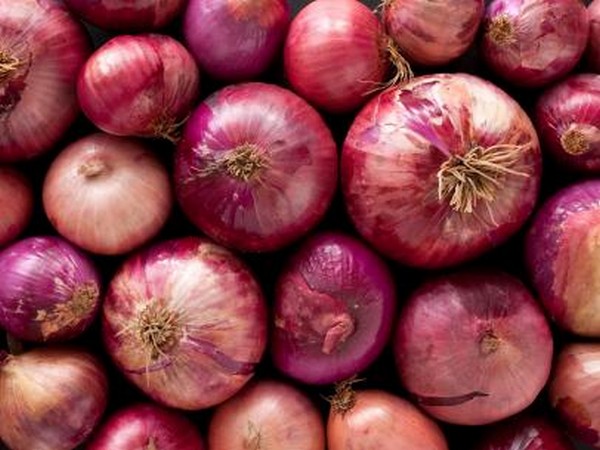
New Delhi [India], August 11 (ANI): Amid rising prices of onions in parts of India, the central government has started releasing the staple vegetable from its buffer stock. The central government had earlier decided it will maintain 3 lakh tonne of onions in the 2023-24 season as buffer stock. In 2022-23, the government maintained 2.51 lakh tonne onion as buffer stock.
Buffer stock is maintained to meet any exigencies and for price stabilisation, if rates go up significantly during the lean supply season. Rohit Kumar Singh, Secretary Food and Public Distribution department in a meeting on Thursday with the Managing Directors of the government’s agricultural marketing agencies — National Agricultural Cooperative Marketing Federation of India (NAFED) and National Cooperative Consumers’ Federation of India Limited (NCCF) — finalized the modalities for disposal.
“It was decided to release the onion stocks by targeting key markets in states or regions where retail prices are ruling above the all-India average and also where the rates of increase in prices over the previous month and year are above the threshold level. Disposal through e-auction and retail sales on e-commerce platforms are also being explored,” a food ministry release said Friday.
The “quantity and pace of disposal” will also be calibrated with the prices and availability situations with the objective of making onion available to consumers at affordable prices. Apart from market disposal, it was also decided to offer to the States at discounted rates for sale through retail outlets of their consumer cooperatives and corporations, the release added.
“Onion buffer size has been tripled in the past four years; from 1.00 lakh metric tonne in 2020-21 to 3.00 lakh metric tonne in 2023-24. The onion buffer has played a key role in ensuring availability of onion to the consumers at affordable prices and in maintaining price stability,” it said.
Rabi onion harvested during April – June accounts for 65 per cent of India’s onion production and meets the consumer’s demand till the Kharif crop is harvested in October-November. The procured stocks are usually released through targeted open market sales and also to states and Union territories and government agencies for supplies through retail outlets during the lean supply season. (ANI)



















